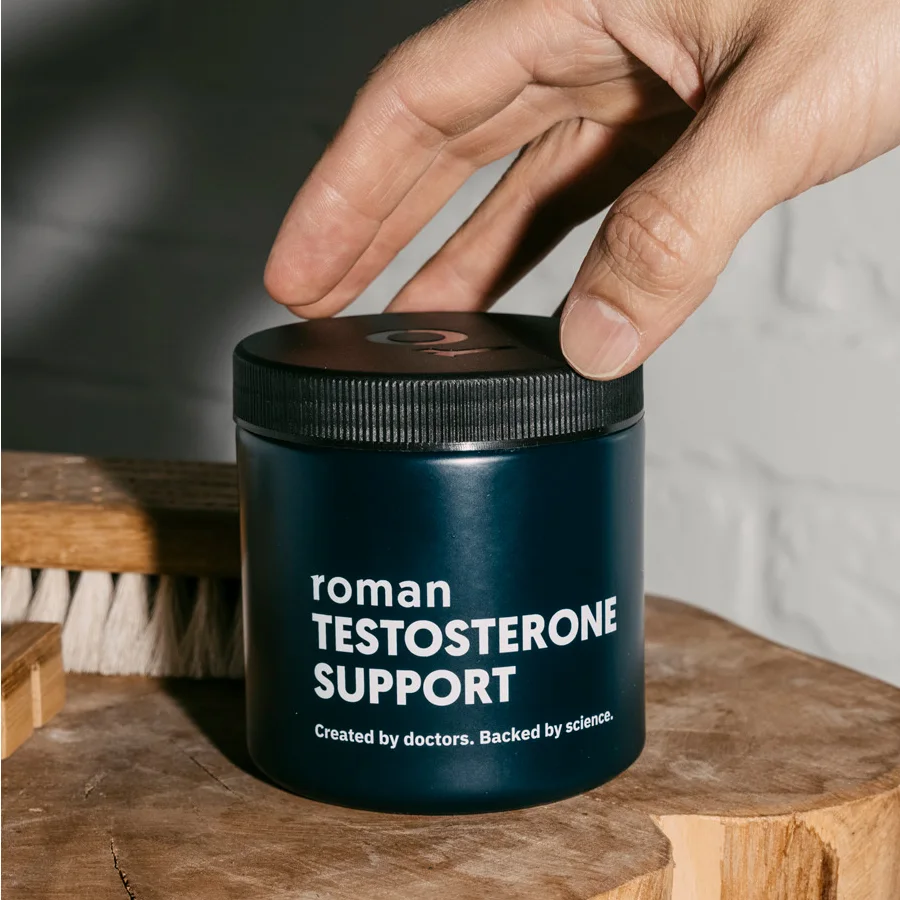Here's what we'll cover
Here's what we'll cover
Here's what we'll cover
You may recognize fenugreek as an ingredient in Indian, Turkish, Iranian, and Egyptian cuisines. But did you know that it’s also available in supplement form?
Some say that fenugreek supplements can affect your testosterone levels―but what does the scientific evidence show? Read on to learn more about the relationship between fenugreek and testosterone.
What is fenugreek?
Fenugreek (Trigonella foenum-graecum) comes from the Latin faenugraecum, meaning “Greek hay.” Other common names include methi, fenugrec, and alholva. It is a maple syrup-smelling herb native to the Mediterranean area and western Asia.
It has been grown for thousands of years for food and medicinal purposes and is related to soybeans, chickpeas, and licorice.
What is fenugreek used for?
As a food, fenugreek is a good source of protein and calcium. Fenugreek seeds, in particular, are rich in dietary fiber, B vitamins, and dietary minerals. But what about using fenugreek for medicinal purposes?
Fenugreek has been used in alternative medicine for over a millennium. It’s been purported to treat many health conditions, including diabetes, low testosterone, inflammation, high cholesterol, cancer, obesity, and infections. Some believe that fenugreek has anti-inflammatory and antioxidant effects and that it can lower cholesterol levels and cause weight loss. And it may even help with cancer (Nagulapalli Venkata, 2017).
Some people prepare fenugreek seeds, fenugreek seed powder, fenugreek leaves, and fenugreek extracts into herbal tea, powders, pills, poultice, and other formulations. But does the science match up with the reputation of this super herb? Let’s find out.
Fenugreek and testosterone
Testosterone is a male sex hormone with a wide range of effects on the human body. It’s important in supporting your sex drive, bone mass, muscle mass, and the production of red blood cells and sperm.
As we age, testosterone levels naturally drop. However, there are other causes of decreased testosterone levels, including obesity, sleep problems like sleep apnea, chronic diseases, certain types of infections (like HIV), and certain drugs (including opioids and steroids) (Sizar, 2021).
Fenugreek may positively impact testosterone production in the body because it contains compounds called furostanolic saponins, which supposedly block aromatase and 5-alpha-reductase—two enzymes that break down testosterone. The theory is that you could potentially increase testosterone levels by stopping the enzymes that break testosterone down (Wankhede, 2016).
Some small studies suggest that taking fenugreek may positively affect testosterone levels (Wankhede, 2016; Park, 2018). However, other studies have shown no effect on testosterone with fenugreek supplementation.
A meta-analysis of the research published on fenugreek and other herbal supplements found that out of seven total studies on fenugreek in humans, four showed improvements in testosterone. In contrast, the results of the other three studies were indeterminate (Balasubramanian, 2019).
The studies thus far on testosterone have been small, and many of them have been supported by the manufacturers of fenugreek supplements. More research needs to be done in this area to conclusively determine the effects of fenugreek on testosterone.
If you are worried about low T, talk to your healthcare provider about testing your testosterone levels. They can help determine the right treatment for you.
Other benefits of fenugreek
Aside from its possible effects on testosterone, some believe that fenugreek may also have other benefits.
Fenugreek and diabetes
Many parts of the world incorporate fenugreek into traditional medicine practices for diabetes treatment. In Saudi Arabia, Iraq, Oman, and Jordan, it’s one of the three most common herbal remedies for type 2 diabetes (Alsanad, 2018).
Fenugreek is believed to lower blood sugar levels in diabetics by encouraging insulin secretion and improving the uptake of blood glucose (sugar) into your cells (Nagulapalli Vankata, 2017).
So far, there is limited and conflicting data regarding using fenugreek as an antidiabetic treatment. If you want to try this herbal supplement to lower your glucose levels, talk to your healthcare provider first.
Fenugreek and breastfeeding
As more and more research comes out to support the health benefits of lactation over artificial milk, there has been a lot of encouragement for new mothers to breastfeed their infants. Experts recommend breastfeeding for the first six months of a baby’s life. However, up to 10-15% of all breastfeeding mothers may not be able to produce enough milk for their children (Lee, 2016).
To solve this problem, many women have been turning to fenugreek. Fenugreek is popular on many wellness blogs all over the internet as a way to increase breastmilk production (also known as a galactagogue) without the use of medications. But is there scientific evidence to support using fenugreek for lactation?
Similar to the other uses of fenugreek, there isn’t enough conclusive evidence to recommend using this herb to promote breast milk production. Some studies show production improvement, while others show little to no benefit to fenugreek use (Khan, 2018; Grzeskowiak, 2021).
Potential side effects of using fenugreek
Fenugreek is generally safe and well-tolerated in adults. However, using fenugreek can sometimes lead to side effects including (NLM, 2021):
Nausea
Vomiting
Diarrhea
Digestive problems
Upset stomach
Gas
Maple syrup smell in urine, sweat, feces, and possibly breastmilk
Rarely, serious side effects have been seen, such as asthma exacerbations, liver damage, and in one case, a life-threatening drug reaction of the skin called toxic epidermal necrolysis. There’s also a risk of drug reactions with diabetes medications and warfarin or other blood thinners. If you’re allergic to peanuts or other legumes, please be aware that there’s a risk of an allergic reaction to fenugreek (NLM, 2021).
One note about all of the Food and Drug Administration (FDA) rules on dietary supplements is that, unlike drugs, supplement manufacturers don’t need to prove the safety or effectiveness of their products before they hit the market. As with any supplement, fenugreek should not take the place of medications that your healthcare provider prescribes to you.
Talk to your healthcare provider about every health supplement you use. They can provide you with medical advice, help you weigh the risks and benefits, and make sure you stay safe as you manage your health.
DISCLAIMER
If you have any medical questions or concerns, please talk to your healthcare provider. The articles on Health Guide are underpinned by peer-reviewed research and information drawn from medical societies and governmental agencies. However, they are not a substitute for professional medical advice, diagnosis, or treatment.
References
Alsanad, S., Aboushanab, T., Khalil, M., & Alkhamees, O. A. (2018). A Descriptive Review of the Prevalence and Usage of Traditional and Complementary Medicine among Saudi Diabetic Patients. Scientifica , 2018 . doi: 10.1155/2018/6303190. Retrieved from https://www.ncbi.nlm.nih.gov/pubmed/30228928
Balasubramanian, A., Thirumavalavan, N., Srivatsav, A., Lipshultz, L., & Pastuszak, A. (2019). Testosterone imposters: an analysis of popular online testosterone boosting supplements. The Journal of Sexual Medicine , 16 (2), 203–212. doi: 10.1016/j.jsxm.2018.12.008. Retrieved from https://www.ncbi.nlm.nih.gov/pmc/articles/PMC6407704/
Grzeskowiak, L. E. (2021). No evidence that fenugreek is more effective than placebo as a galactagogue. Phytotherapy Research : PTR, 35 (4), 1686–1687. doi: 10.1002/ptr.6914. Retrieved from https://pubmed.ncbi.nlm.nih.gov/33089557/
Khan, T. M., Wu, D. B. C., & Dolzhenko, A. V. (2018). Effectiveness of fenugreek as a galactagogue: A network meta-analysis. Phytotherapy Research , 32 (3), 402–412. doi: 10.1002/ptr.5972. Retrieved from https://www.ncbi.nlm.nih.gov/pubmed/29193352
Lee, S. & Kelleher, S. L. (2016). Biological underpinnings of breastfeeding challenges: the role of genetics, diet, and environment on lactation physiology. American Journal of Physiology-Endocrinology and Metabolism , 311 (2), E405–E422. doi: 10.1152/ajpendo.00495.2015. Retrieved from https://www.ncbi.nlm.nih.gov/pubmed/27354238
Nagulapalli Venkata, K. C., Swaroop, A., Bagchi, D., & Bishayee, A. (2017). A small plant with big benefits: Fenugreek (Trigonella foenum-graecum Linn.) for disease prevention and health promotion. Molecular Nutrition & Food Research , 61 (6), 10.1002/mnfr.201600950. doi: 10.1002/mnfr.201600950. Retrieved from https://pubmed.ncbi.nlm.nih.gov/28266134/
National Library of Medicine (NLM). (2021). Retrieved on Jan. 15, 2022 from https://www.ncbi.nlm.nih.gov/books/NBK501779/
Park, H. J., Lee, K. S., Lee, E. K., & Park, N. C. (2018). Efficacy and safety of a mixed extract of trigonella foenum-graecum seed and lespedeza cuneata in the treatment of testosterone deficiency syndrome: a randomized, double-blind, placebo-controlled clinical trial. The World Journal of Men's Health , 36 (3), 230–238. doi: 10.5534/wjmh.170004. Retrieved from https://www.ncbi.nlm.nih.gov/pubmed/29623697
Sizar, O. & Schwartz, J. (2021). Hypogonadism. [Updated Jun 29, 2021]. In: StatPearls [Internet]. Retrieved on January 15, 2022 from https://www.ncbi.nlm.nih.gov/books/NBK532933/
Wankhede, S., Mohan, V., & Thakurdesai, P. (2016). Beneficial effects of fenugreek glycoside supplementation in male subjects during resistance training: A randomized controlled pilot study. Journal of Sport and Health Science , 5 (2), 176–182. doi: 10.1016/j.jshs.2014.09.005. Retrieved from https://www.ncbi.nlm.nih.gov/pubmed/30356905



